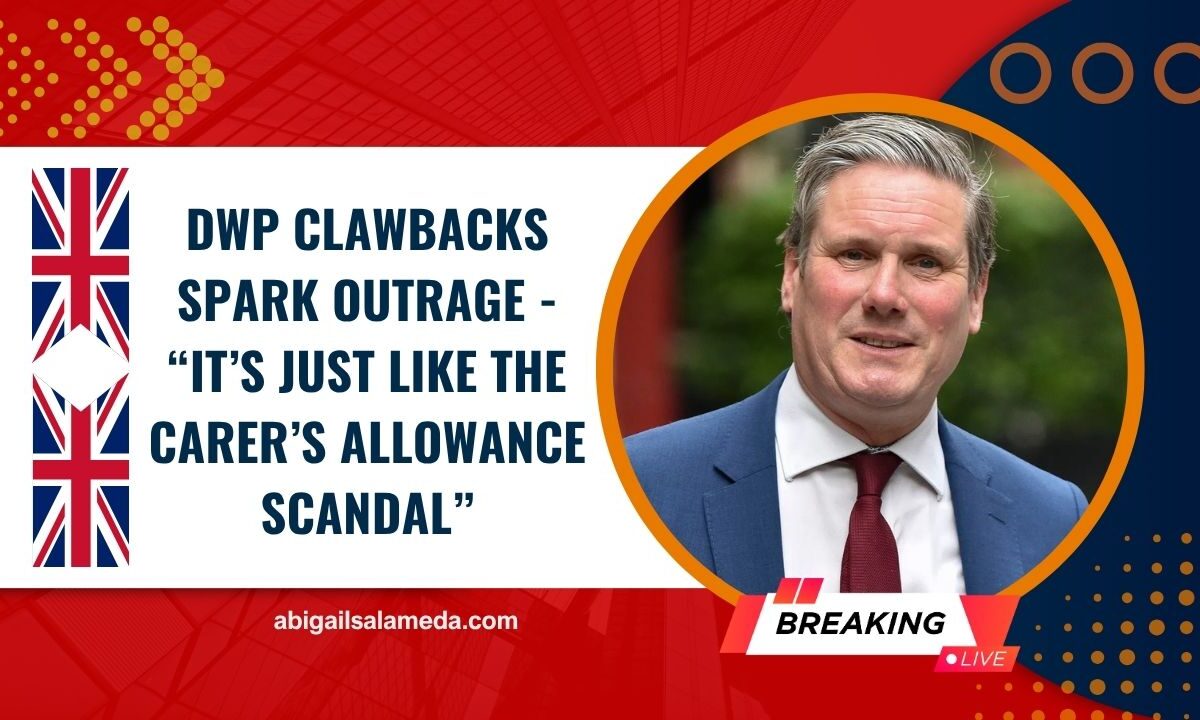In the UK, an increasing number of benefit claimants are being blindsided by unexpected notifications from the Department for Work and Pensions (DWP): “You’ve been paid more Universal Credit than you are entitled to. This will now be taken back.”
As of 2025, approximately 1.1 million individuals owe money to the DWP due to overpayments. Shockingly, many of these overpayments result from errors made by the department itself.
Still, when these mistakes are discovered, the DWP often takes swift and severe action to claw back the funds, sparking widespread criticism and emotional distress—particularly for vulnerable claimants.
What’s Happening and Why It Matters
A recent surge in Universal Credit overpayment recoveries has led to concerns from claimants, advocacy groups, and policy experts alike.
In many cases, recipients had no idea they were being overpaid, only to find themselves facing automatic deductions of up to 15% from their monthly benefits—sometimes with little or no prior warning.
The frustration lies not just in the deductions themselves, but in the aggressive and impersonal manner in which these repayments are enforced.
The situation bears a striking resemblance to the Carer’s Allowance scandal, where unpaid carers were hit with unexpected repayment demands and, in some cases, prosecution—even when they had tried to report changes in their income.
DWP Overpayment Recovery: The Facts
| Metric | Details |
|---|---|
| Total people affected | Around 1.1 million |
| Amount overpaid in recent year | Over £6.4 million |
| Typical deduction rate | 15% of monthly Universal Credit |
| Minimum deducted for single adults | Approximately £60 per month |
| Most affected group | Vulnerable individuals, including those with mental health issues |
| Negotiation options | Available, but difficult to access and poorly communicated |
A Repeat of the Carer’s Allowance Crisis?
The current situation is eerily reminiscent of the Carer’s Allowance scandal, where thousands of unpaid carers were forced to repay thousands of pounds, often because of minor reporting errors or unclear communication from the DWP.
In one notable case, a mother of three, two of whom have disabilities, was told to repay £17,000 after unknowingly receiving the carer’s element of Universal Credit for three years. In another, a woman was falsely accused of owing over £28,000.
Critics argue that the DWP is repeating its past mistakes by implementing automated recovery systems without accounting for the financial and psychological toll on claimants.
For people already struggling with food, rent, and essential living costs, a sudden 15% deduction can push them over the edge.
The Impact on Mental Health and Daily Living
A recent survey of benefit recipients with mental health conditions revealed that:
- Many were unaware of their overpayment until deductions began.
- Most had not been offered the chance to discuss repayment terms beforehand.
- Respondents reported having to skip meals, borrow money, or fall behind on rent due to DWP deductions.
One participant noted:
“Some days I haven’t eaten because I can’t afford to. This is ruining my mental health.”
The Problem with the Current System
- Immediate Deductions: Deductions often begin without warning or discussion.
- Lack of Transparency: Many claimants don’t understand why they owe money or how to challenge it.
- Poor Communication: Contacting DWP to negotiate a fair repayment plan is extremely difficult, especially for those with mental health conditions.
- Unbalanced Power: Unlike private creditors, the DWP can deduct funds without a court order or proper appeal process.
New Powers Raise More Concerns
Under the proposed Fraud, Error and Recovery Bill, the DWP could gain direct access to bank accounts of individuals no longer receiving benefits, enabling it to reclaim overpayments without a court order.
Critics fear this could lead to even more unjust and unregulated deductions, especially from people in fragile financial situations.
Though DWP insists this will prevent long-term debt accumulation and aid in quicker error correction, the move has sparked significant concern from rights groups and welfare advocates
Steps Claimants Can Take
- Check DWP Correspondence Carefully: Never ignore overpayment letters or messages.
- Request a Breakdown: Ask for a full explanation of how the overpayment occurred.
- Apply for a Lower Repayment Rate: You can request a reduced deduction rate if you’re experiencing hardship.
- Seek Advocacy Support: Charitable organizations and legal aid services may help challenge unfair deductions.
The DWP’s current handling of benefit overpayments—especially its swift deductions and lack of communication—has drawn sharp criticism and renewed comparisons to the Carer’s Allowance scandal.
With new powers on the horizon, it’s more crucial than ever that the system becomes transparent, fair, and humane.
For now, those affected must navigate a complicated and often overwhelming process, but public pressure is building. There’s hope that these issues will force a much-needed reform in how the UK supports its most vulnerable citizens.
FAQs
How can I reduce the amount the DWP takes from my Universal Credit?
You can apply for a lower repayment rate by contacting the DWP and explaining your financial hardship. In some cases, rates as low as 5% may be approved.
Can I challenge an overpayment if I believe it wasn’t my fault?
Yes. You can appeal the decision or request a mandatory reconsideration. It’s important to act quickly and keep written records.
Does the DWP always notify claimants before deductions begin?
Not always. In many reported cases, people only discover the overpayment when deductions appear on their Universal Credit statement.




